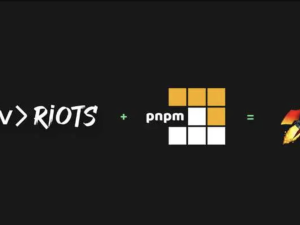Yarn Package Manager: Modern Dependency Management for Web Developers
- Description
- Curriculum
- FAQ
- Reviews
- Grade
Yarn is more than just an alternative to npm—it’s a fast, reliable, and modern package manager built for scale and efficiency. This comprehensive course will help developers unlock the full power of Yarn, from basic usage to advanced features introduced in Yarn 3+.
We begin with an Introduction to Yarn, where you’ll understand its philosophy, key differences from npm, and how it fits into modern JavaScript and TypeScript development.
In Yarn Basics and Dependency Management, you’ll learn to manage packages with precision—adding, upgrading, locking, and removing dependencies while mastering the yarn.lock file and deterministic installs. You’ll also discover how to use scripts, aliases, and constraints to enforce consistency.
Next, we dive into Workspaces and Monorepo Management—one of Yarn’s most powerful features. You’ll learn to structure large projects, manage shared dependencies across packages, and streamline development in scalable codebases using Yarn Workspaces.
The course then covers Advanced Features in Yarn 3+, such as Plug’n’Play (PnP) for zero-install builds, constraints with Protobuf validation, protocol enhancements, and even how to extend Yarn with custom plugins.
In Performance, Reliability & Offline Use, we explore how Yarn achieves speed and stability, from caching and parallel installs to fully offline workflows that ensure your builds never break in CI/CD environments.
Finally, you’ll tackle Migrating from npm to Yarn. You’ll walk through a smooth migration strategy, handle compatibility concerns, and adapt existing workflows to take advantage of Yarn’s unique features.
-
1What is Yarn and Why Use It?1h 45m
Overview of npm vs Yarn, offline cache, deterministic installs, security
-
2Installing and Initializing Yarn2hThis lesson is locked because you haven't completed the previous one yet. Finish the previous lesson to unlock this one.
Installation via npm, Corepack, or Homebrew; creating a package.json.
-
3Yarn Classic vs Yarn v2+ (Berry)2 hoursThis lesson is locked because you haven't completed the previous one yet. Finish the previous lesson to unlock this one.
Key differences, migration path, and enabling modern features
-
4Adding, Upgrading, and Removing Packages2hThis lesson is locked because you haven't completed the previous one yet. Finish the previous lesson to unlock this one.
yarn add, yarn remove, yarn upgrade, using version ranges
-
5Understanding yarn.lock and Determinism2 hoursThis lesson is locked because you haven't completed the previous one yet. Finish the previous lesson to unlock this one.
Lockfile guarantees, comparing with package-lock.json
-
6Scripts and Custom Commands2 hoursThis lesson is locked because you haven't completed the previous one yet. Finish the previous lesson to unlock this one.
Defining and running project scripts using yarn run
-
7Introduction to Workspaces2hThis lesson is locked because you haven't completed the previous one yet. Finish the previous lesson to unlock this one.
Creating and linking multiple packages inside one repository
-
8Dependency Hoisting and Linking2hThis lesson is locked because you haven't completed the previous one yet. Finish the previous lesson to unlock this one.
How Yarn resolves shared dependencies efficiently
-
9Publishing Packages from Workspaces2hThis lesson is locked because you haven't completed the previous one yet. Finish the previous lesson to unlock this one.
Internal libraries and publishing to npm or private registries
-
10Plug’n’Play (PnP)2hThis lesson is locked because you haven't completed the previous one yet. Finish the previous lesson to unlock this one.
Virtual filesystem, .pnp.js, and avoiding node_modules
-
11Constraints and Dependency Rules2hThis lesson is locked because you haven't completed the previous one yet. Finish the previous lesson to unlock this one.
Using constraints to enforce dependency versions and policy
-
12Yarn Plugins and Extensibility2hThis lesson is locked because you haven't completed the previous one yet. Finish the previous lesson to unlock this one.
Adding community or custom plugins to extend Yarn behavior
-
13Offline Caching and Zero-Install2hThis lesson is locked because you haven't completed the previous one yet. Finish the previous lesson to unlock this one.
Setting up .yarn/cache, bundling dependencies with the repo.
-
14CI/CD Optimization with Yarn2hThis lesson is locked because you haven't completed the previous one yet. Finish the previous lesson to unlock this one.
Caching strategies in GitHub Actions, GitLab CI, and Docker
-
15Troubleshooting & Cleaning2hThis lesson is locked because you haven't completed the previous one yet. Finish the previous lesson to unlock this one.
yarn doctor, yarn cache clean, yarn dedupe, and lockfile conflicts
-
16Converting npm Projects to Yarn2hThis lesson is locked because you haven't completed the previous one yet. Finish the previous lesson to unlock this one.
Generating lockfiles, maintaining compatibility, pitfalls.
-
17Migrating Monorepos to Yarn Workspaces2hThis lesson is locked because you haven't completed the previous one yet. Finish the previous lesson to unlock this one.
Using Yarn workspaces to replace Lerna or Nx.
-
18Comparison with npm and pnpm2hThis lesson is locked because you haven't completed the previous one yet. Finish the previous lesson to unlock this one.
Evaluating performance, security, and team collaboration
-
19Yarn Monorepo ApplicationAssignmentThis lesson is locked because you haven't completed the previous one yet. Finish the previous lesson to unlock this one.

By the end of this course, you will:
-
Understand how Yarn improves speed, predictability, and control in modern JavaScript projects.
-
Efficiently manage dependencies and automate workflows.
-
Implement and maintain scalable monorepos with Yarn Workspaces.
-
Use and configure powerful new features in Yarn 3+.
-
Migrate existing npm-based projects to Yarn without disrupting your team or pipeline.
Javascript
Frontend & Backend Developers
Archive
Working hours
| Monday | 9:30 am - 6.00 pm |
| Tuesday | 9:30 am - 6.00 pm |
| Wednesday | 9:30 am - 6.00 pm |
| Thursday | 9:30 am - 6.00 pm |
| Friday | 9:30 am - 5.00 pm |
| Saturday | Closed |
| Sunday | Closed |







